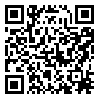BibTeX | RIS | EndNote | Medlars | ProCite | Reference Manager | RefWorks
Send citation to:
URL: http://jrh.gmu.ac.ir/article-1-924-en.html
2- Department of Psychology, Faculty of Psychology and Educational Sciences, Semnan University, Semnan,
3- Department of Psychology, Faculty of Psychology and Educational Sciences, Islamic Azad University of Tehran, Tehran,
4- Department of Psychology, Faculty of Psychology, Behavioral Sciences Research Center of Shahid Beheshti University of Medical Sciences,
Women have higher vulnerability regarding to increase prevalence of obesity and its effect on people’s body image and women’s health on the society and future generations’ health is unquestionable role , negative body image influence on women’s eating habits and mental health, so aim of present research is to compare metacognitive beliefs and emotional regulation strategies in obese women with positive and negative body image. This study was a causal-comparative. The statistical population of this study consisted of 100 obese women with a BMI>30 who had referred to five nutritional clinics in Tehran. The clinics and the participants were selected by using the convenience sampling method. The data collection tools were the Structured Clinical Interview for DSM (SCID-I/II), Body Mass Index (BMI), the Metacognitions Questionnaire (MCQ-30), the cognitive emotion regulation questionnaire, and fisher’s body image scale. The multivariate hoteling t-test was used to compare the difference between the two groups. Results indicated that obese women with negative body image had higher mean scores in inefficient emotion regulation strategies including self-blame or focus on thought, catastrophizing and other-blame compared with obese women with positive body image. Moreover, the mean scores of obese women with positive body images was higher in efficient emotional regulation strategies include acceptance, positive refocusing, refocusing on planning, perspective taking and positive reappraisal. Metacognitive beliefs and emotion regulation strategies are significant variables in obese woman with positive and negative body images.
Received: 2014/11/20 | Accepted: 2015/05/25 | Published: 2017/04/24
| Rights and permissions | |
 |
This work is licensed under a Creative Commons Attribution-NonCommercial 4.0 International License. |






